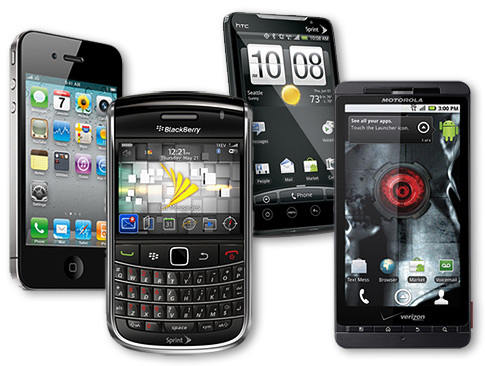Only big government could imagine a competitive auction is bad for competition.
The FCC and DOJ appear determined to limit competition in the upcoming FCC spectrum auction by banning Verizon and AT&T from bidding for 600 MHz TV broadcast spectrum.
Why run an auction to competitively determine who gets spectrum, if competitors that serve a majority of American consumers are banned from bidding? That’s not competition. That’s a rigged federal auction to steer a valuable taxpayer asset to government-favored companies with taxpayers unwittingly footing the bill.
Why not just be open about it and pre-determine the auction winners? Why the charade?
This public charade is necessary in order to construct a publicly defensible rationale that makes it appear like the Government is not picking winners and losers, when they know that they are.
Tellingly, Sprint and T-Mobile have been heavily lobbying the FCC and DOJ for special assistance in this auction and apparently the FCC and the DOJ are sympathetic.
Importantly, Sprint and T-Mobile don’t need to be subsidized by the U.S. government. Sprint, a Fortune 100 company, currently has dueling billionaires fighting over who can provide Sprint the most capital, and T-Mobile is a subsidiary of Deutsch Telecom, which is part-owned by the German government.
This charade is corporate welfare masquerading as promoting consumer welfare.
There is a reason why the FCC and the DOJ are constructing this elaborate ruse to arbitrarily sub-divide the spectrum market between spectrum holdings below 1 GHz (low band) and spectrum holdings above 1 GHz (high band). The reason for the ruse is that one of the company’s that the government wants to favor, Sprint-Clearwire, controls by far the most quantity of spectrum of any U.S. wireless provider.
The FCC and DOJ do not want to look ridiculous applying a spectrum cap to Verizon and AT&T and not Sprint when the FCC’s own Wireless Competition report shows that Sprint controls roughly twice as many MHz per population as either Verizon or AT&T.
So presto, they appear poised to change the rules of the spectrum game, mid-game, to re-classify spectrum below 1 GHZ as different for regulatory purposes than spectrum above 1 GHz. And they need to do so in a way that it does not look obvious that they are gerrymandering spectrum rules to unfairly exclude just Verizon and AT&T from the upcoming auction.
Unfortunately for the government, this ruse is so patently unfair and contrived, that no one should be surprised if Verizon or AT&T challenged such rules in court for being arbitrary and capricious.
Consider the evidence that the government’s apparent plan would be arbitrary and capricious.
First, according to FCC figures, roughly half of Verizon and AT&T’s spectrum holdings are each above 1 GHZ. Does that make them low band or high band competitors?
Second, Federal Government spectrum hoarding is the primary reason why spectrum is scarce and not keeping pace with exploding consumer demand. In this context of artificial scarcity, why is natural market demand for spectrum by Verizon and AT&T presumed to be driven by anti-competitive motives rather than pro-competitive motives?
The burden of proof here should be on the government to justify the need for preemptive asset-acquisition bans, the most severe form of regulation possible. It should not be on Verizon or AT&T to prove they are innocent and actively competing with each other, in addition to competing with Sprint and T-Mobile.
The FCC and DOJ seem to be stuck in a time warp imagining they are still facing the AT&T long distance monopoly of thirty years ago or the Baby Bell monopoly voice services of over ten years ago. Times and facts have changed dramatically since then.
Today’s factual predicate is that the long distance business no longer exists; it’s largely a free feature of other services. And the reality is that the legacy Bells have lost two-thirds of their local voice customers to cable, wireless, VoIP, and other competitors.
Third, the FCC/DOJ’s patently unfair logic here essentially blames Verizon and AT&T, for the fact that Sprint and T-Mobile voluntarily did not bid in the 2008 700 MHz auction, that Verizon and AT&T did bid in, making it the highest-revenue-generating auction in FCC history.
Now they perversely seek to punish Verizon and AT&T by preemptively banning them from the 600 MHz auction to make up for Sprint and T-Mobile’s 2008 market misjudgments. No good deed goes unpunished.
Fourth, hertz, or frequency cycles-per-second, are simply a measurement unit, like distance is with inches, feet, and yards. What the FCC and DOJ are apparently scheming to do here is the equivalent of taking a tape measure and declaring that everything measured under one foot is a distinct market and everything measured more than a foot long is another separate market.
The government knows it can’t empirically justify why it drew the line at spectrum below or above 1 GHz.
Lastly, the FCC and DOJ are not only picking market winners and losers, and choosing one wireless technology over another, they are also trying to decide what features consumers should value more, rather than letting consumers decide in the competitive marketplace.
The whole premise behind the FCC/DOJ’s preemptive scheme here is that it presumes to know that signal power of low-band spectrum is what consumers most want rather than unlimited use and faster broadband speeds that high-band spectrum offers. Ironically, this selective view contradicts the FCC’s general high-priority of pushing faster broadband speeds to all Americans and its preference for unlimited data usage.
The technical facts that the FCC and DOJ are conveniently ignoring — because they disprove their low-band premise — is that the MHz sizes of low-band licenses are smaller than those in high-band licenses. This is an important and relevant fact because of the physics of spectrum limit the potential broadband speed available to a consumer to the amount of MHz in a license.
For example, Sprint-Clearwire’s 130 MHz of contiguous 2.5 MHz licenses offer the potential for dramatically faster wireless broadband speeds for a consumer than Verizon or AT&T could offer with their smaller-MHz, low-band licenses.
In short, the FCC and DOJ apparently do not trust the inherent competition of a public spectrum auction to best serve consumers.
In addition, apparently, the FCC/DOJ want to steer the outcome of the 600 MHz auction to benefit the largest spectrum holder, Sprint-Clearwire, and T-Mobile, by preemptively banning Verizon and AT&T, the competitors with the most customers and thus the most demand for more spectrum, from bidding.
The ultimate irony here is that the FCC calls the 600 MHz auction “the incentive auction,” when it is more focused on erecting disincentives rather than incentives for a successful auction to adequately fund the much-needed public safety network and reduce the budget deficit.
[First Published by The Daily Caller]





